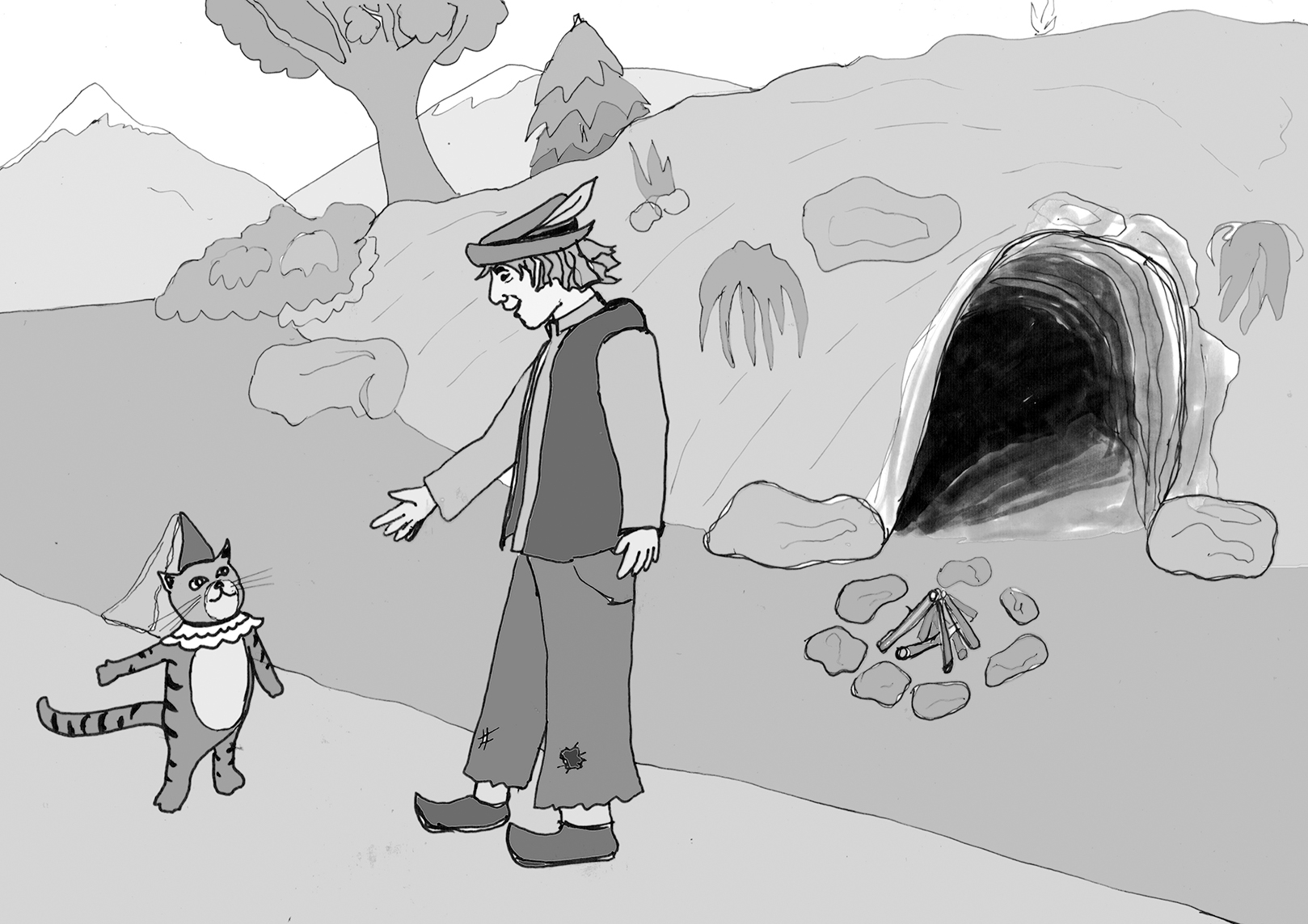
The Brothers Grimm traveled around Germany and collected German fairy tales like this one. They recorded the stories and published them in several different books. While Puss in Boots originated in France and Italy, this German fairy tale features many of the same types of characters and concepts. As you read, see if you can spot the differences and similarities between the two stories.
In a certain mill lived an old miller who had no wife or children, but three young apprentices served under him. Two of the apprentices were quite clever, but Hans, the third apprentice, was the drudge and wasn’t especially bright. One day, the miller announced that he wanted to retire and that he planned to give the mill to one of his three apprentices. The boy who brought the miller the best horse would inherit the mill.
So all three apprentices departed the mill together in search of horses. When they came to the village, the smarter two said to Hans, “You may as well go back to the mill because you’ll never make enough money to buy a good horse.” Hans ignored them and went along anyways.
When night fell, they came to a cave and lay down to sleep. The two smarter ones waited until Hans had fallen asleep and then abandoned him, thinking that he’d slow them down.
The next morning, Hans woke up all alone. Confused, he got up and clambered out of the cave. Just then, a tabby-cat appeared and said, “Hans, where are you going?”
Hans replied, “It doesn’t matter, you can’t help me anyway.”
“Not true,” responded the cat. “I know exactly what you are looking for—you wish to have a beautiful horse. Come with me, and be my faithful servant for seven years, and then I will give you the most stunning horse you’ve ever seen in your whole life.”
“Well, this is a wonderful cat!” thought Hans, “but I am determined to see if she is telling the truth.” So Hans agreed to go and she took him with her into her enchanted castle which was filled with many other cats, all of whom were her servants.
The cat servants took very good care of Hans. They bathed him and dried him with their soft tails. They dressed him and fed him the finest foods. Hans had to toil for the tabby cat, true, but he loved living there.
For seven years, Hans chopped the wood, mowed the lawn in the meadow, and did whatever task the tabby cat asked of him. Seven years passed so quickly that it only felt like six months to Hans. When his time was up, he went to the tabby cat to inquire about his reward.
“I will give you your reward,” said the cat. “But I have one more thing for you to do: I need you to build me a small house.”
So Hans built the house and returned to the cat for his reward. She told him to go back to the mill and in three days’ time she would bring him the most magnificent horse he’d ever seen.
So Hans returned to the mill and learned that the other two apprentices had indeed found horses for the miller. But one of the horses was blind and the other was lame. The smarter apprentices asked Hans where his horse was and Hans told them that it would arrive in three days’ time.
The other two apprentices laughed at him, saying something about Hans’s horse probably being ragged and old. That night, they didn’t let Hans sleep in the house, but made him sleep in the barn.
Three days later a handsome coach approached led by six beautiful horses. A servant brought a seventh horse, which was for Hans. A magnificent princess stepped down from the coach and went into the mill. This princess was actually the little tabby-cat whom poor Hans had served for seven years.
She asked the miller where Hans was. So they brought him out and the princess’s servants dressed him in splendid garments fit for a king. Then the princess presented Hans with the seventh shining horse, his reward for seven years of hard work. The miller was so impressed with the horse that he said that he would give the mill to Hans.
The princess told the miller that he could keep the horse, but that she was taking Hans back with her. And she did. And the two got married and lived happily ever after.



 About BeeLine
About BeeLine